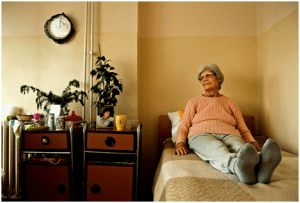Guest Blog: What to Look For in a Senior Living Community
Before you look up a senior living community or Google personal care homes near me, you should first get to know about the common options available for where your aging parents can reside.
Below are the most popular and preferred options to pick from –
- Independent Living – This type of living is good for the elderly who can largely function independently with occasional medical care required. Medical care is provided in collaboration with hospitals or medical establishments. Typical services include accommodation, laundry, transportation, housekeeping, and other amenities like pool, concierge service, library, fitness center, etc.
- Assisted Living – Assisted living centers, in addition to accommodation also provide onsite health care and help with ADLs like dressing, bathing, and medication management so residents can live independently. The setting is very home-like without the residents having to worry about maintenance, cooking, or cleaning. There’s round-the-clock supervision available.
- Memory Care – This facility is specifically designed to treat and care for people with dementia or Alzheimer’s. The staff is medically trained to handle their special medical needs. The rooms and buildings are structured to avoid wandering. Supervision is available all the time with plenty of programs for socialization. There are housing and laundry services along with an emergency medical call system.
- Enhanced Living – You can think of this facility as a move up from Independent living with a whole lot of extra services available.
Things To Look For In A Senior Living Community
Senior Living Culture
Now the living culture is not something that you define in words. It’s mostly just a feel or a vibe that you pick up on. At times, you just know it when you visit the facility. Other times it’s a hunch of an intuition.
To truly assess the culture, it’s better if you call up your list of communities and visit them one by one. Observe the residents and see if they seem happy. How is the staff? Are they polite to respond? Is the overall energy of the place happy? Ask for social activities to keep the residents happy.
Lifestyle & Wellness
Lifestyle and wellness largely depend on the social calendar of the place. So, be sure to look at those activities as well as exercise, health, and wellness programs. Make sure to ask about how often the residents are allowed to go out for activities.
What about housekeeping and laundry services? How often are friends and families allowed to visit? Is there a dedicated private or common area for family get-togethers? What about pets? Are they allowed?
Staff and Care
How many staff members are present at the facility? Are the staff members nice to interact with the residents? Do they seem polite? What kind of help can you expect from them? Is the medical staff made to undergo regular training to update their knowledge?
What’s the mode of communication for updating families on the health updates of the residents? Also, how quickly can you expect your questions to be answered? What kind of care is available for residents with special medical issues such as diabetes, memory, or mobility issues?
What’s Food Like?
Food is a huge part of staying healthy during old age. So, this is something you must not overlook. If possible, arrange for a tour of the mess/kitchen. Look into how the food is prepared. Are the conditions there hygienic?
What about the food menu? Does it look interesting? Is it extensive and accommodates special dietary restrictions such as gluten-free and vegan-friendly foods? What are the dining hours like and is there food sampling available?
Extra Amenities
It’s not uncommon for people to get stuck between two close contenders. Sometimes two communities can look exactly the same; making it difficult to pick one. When faced with such a dilemma it’s often the extra amenities that help you make the right choice.
See if the laundry and housekeeping services are free. Some facilities charge extra for those. Look into community events, transportation, or socialization activities. Anything extra is a good thing to consider.
History and Reputation
How long has the community been in business? For how long has the management been with the community? What about the staff? For how many years they have been working there?
One of the best things to discern all this and more is to go online. Check out reviews and see what they have to say. Pay attention to how the community has responded to negative reviews. Only avoid the community if you come across something disturbing like bad handling of residents or complete neglect on part of the staff.
Bottom Line
Selecting the right living community for your senior can seem like a daunting task. But, if you invest a little bit of time and effort, it should be a cakewalk.






